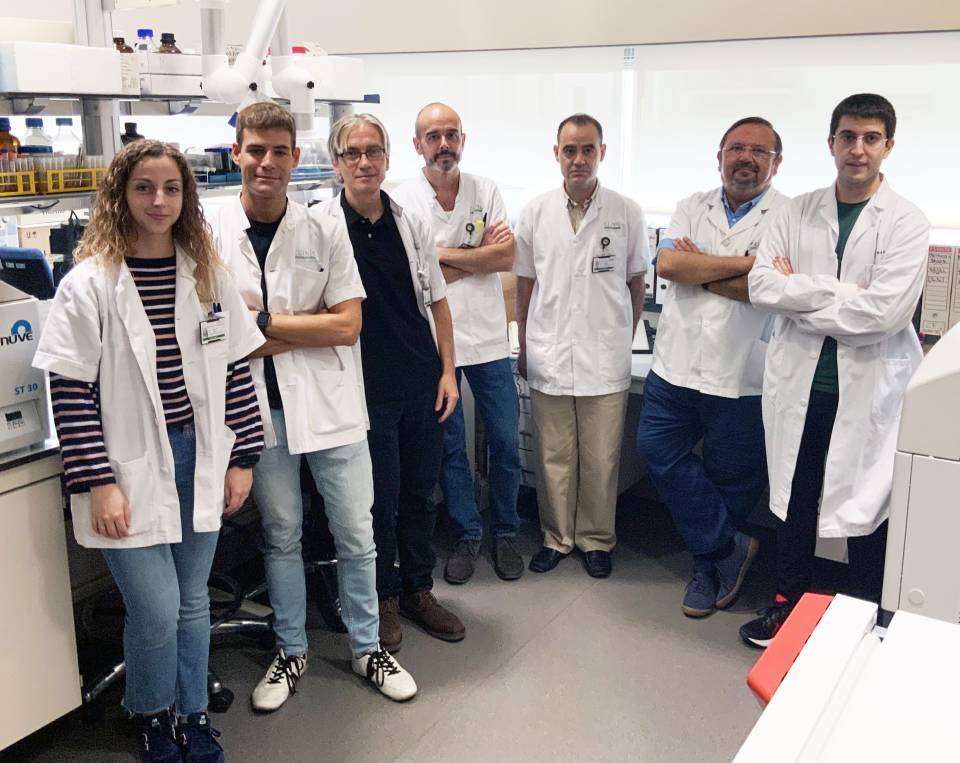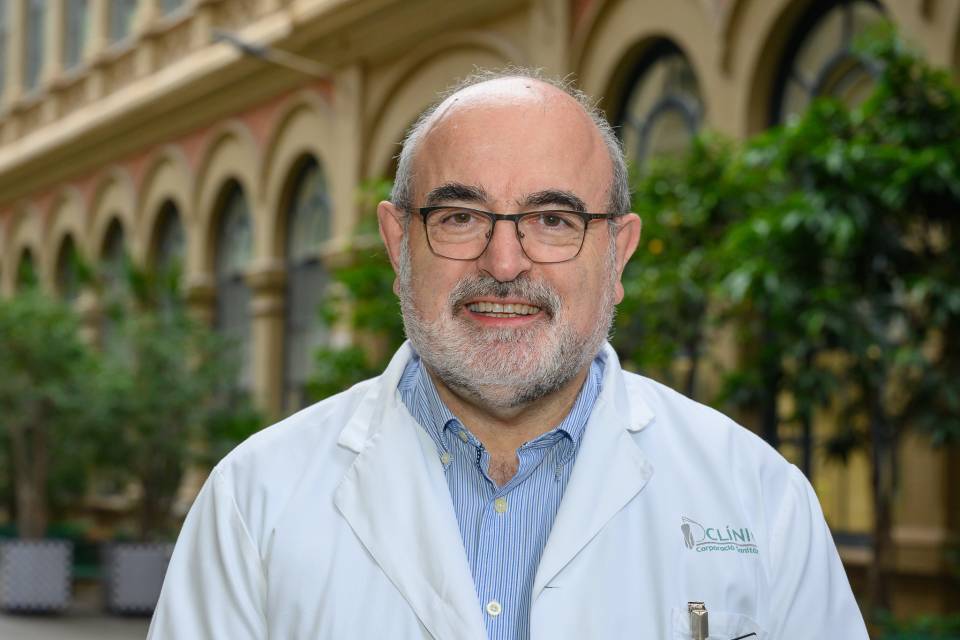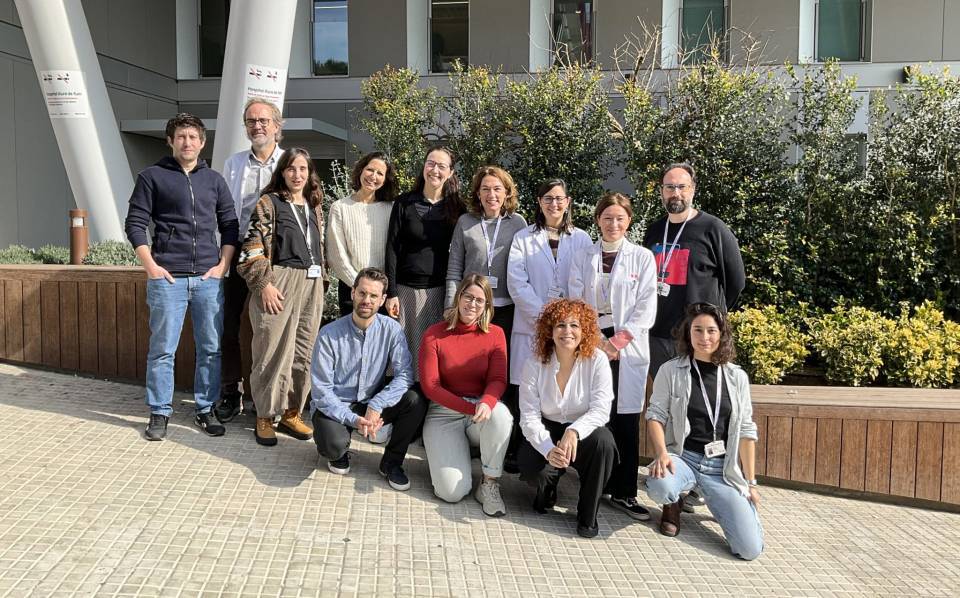ATP-dependent RNA helicases are a family of enzymes that play a key role in RNA metabolism. These molecules also participate in the maintenance and control of various cellular processes, and their alteration has been related with diseases such as cancer or neurodegenerative disorders.
Now, researchers from the IDIBAPS Translational research group in new therapeutic and diagnostic strategies in liver diseases have discovered that deficiency of DHX15, a new member of the RNA helicases group, produces vascular defects, a fact which reduces tumor growth and metastases. This finding has been published in the journal Communications Biology. Manuel Morales Ruiz led the study, while Jordi Ribera, the lead author, and Irene Portolés, second author, conducted the majority of the experiments.
“Our aim was to study the role of DHX15 in the metabolism and the function of endothelial cells, which form the internal coating of the blood and lymph vessels,” explains Manuel Morales. “For that reason, we generated animal models. Specifically, zebrafish and mice genetically modified in order to suppress the expression of DHX15”.
According to the results, the absence of DHX15 reduces the density of the blood and lymph vessels, as well as their ramification. Furthermore, the modified animals showed a reduction in lymphatic drainage and cardiovascular anomalies. The analysis of the transcriptome, the set of RNA molecules present in cells, suggests that depletion of DHX15 reduces the production of endothelial ATP. This molecule is the main source of energy of the cells. Therefore, its reduction could explain the vascular defects observed.
These anomalies, however, also had a negative effect on tumor progression: “After the injection of tumor cells, we observed partially inhibited primary tumor growth and reduced lung metastasis, in mice deficient in DHX15. This suggests that suppressing DHX15 could be a potential therapeutic target for controlling cancer and metastases”, the researchers conclude.
In addition to the IDIBAPS team, participants in the study also included researchers from the Bellvitge Biomedical Research Institute, the Barcelona Biomedical Research Institute (IIBB-CSIC), the University of Barcelona, the Biomedical Research Network Centre in Cancer (CIBERONC), the Biomedical Research Network Centre in Hepatic and Digestive Diseases (CIBEREHD), the Biomedical Research Network Centre in Bioengineering, Biomaterials and Nanomedicine (CIBER-BBN), the National Centre for Genome Analysis (CNAG-CRG) and Yale University.
The research has received funding from the Ministry of the Economy and Competitiveness and the State Research Agency (PDI2019-105502RB-100 and BES-2017-080823), as well as the Biomedical Research Network Centre in Hepatic and Digestive Diseases (CIBEREHD).
Reference article
Jordi Ribera, Irene Portolés, Bernat Córdoba-Jover, Juan Rodríguez-Vita, Gregori Casals, Bernardino González-de la Presa, Mariona Graupera, Estel Solsona-Vilarrasa, Carmen García-Ruiz, José C. Fernández-Checa, Guadalupe Soria, Raúl Tudela, Anna Esteve-Codina, Guadalupe Espadas, Eduard Sabidó, Wladimiro Jiménez, William Sessa, Manuel Morales-Ruiz. The loss of DHX15 impairs endothelial energy metabolism, lymphatic drainage and tumor metastasis in mice. Communications Biology DOI: 10.1038/s42003-021-02722-w




